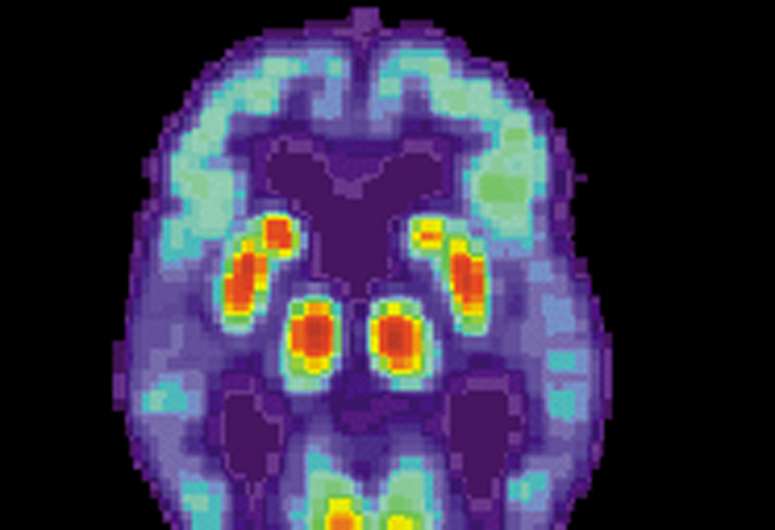In landmark study, doctors say test identifies people most likely to get Alzheimer's

The beginning was the worst. It frustrated Janet Parkerson when her father started to forget what he had done that day or the day before.
But soon names slipped his mind, too, and then he failed to recognize people. Then he lost his ability to talk and to walk, and then he died, bedridden.
"I saw my father die of Alzheimer's," said Parkerson, 85. "I've experienced a lot of what it's like—it's terribly sad—and I would be very happy to help people not go through that."
That's why she decided to enroll in a five-year-long Alzheimer's research study about four years ago. On Monday, she eagerly sat in the auditorium of East Ridge at Cutler Bay, her Pine Crest senior living community, alongside about 50 other fellow residents, some of whom also volunteered for the studies.
They were all there to hear from the man who recruited them for the study, David Loewenstein, a University of Miami expert in neuropsychology who has been studying Alzheimer's for 32 years. Loewenstein spoke about one of his team's most recent findings: For the first time, they successfully used a behavioral test to identify which patients with cognitive impairment are most likely to develop Alzheimer's.
Loewenstein and his colleagues found patients with mild cognitive impairment, then divided them into three groups. The first was patients with underlying Alzheimer's, as proved by their high levels of amyloid, an aggregation of a protein in the brain of Alzheimer's patients. The second was patients who had the symptoms of Alzheimer's, but didn't have the high levels of amyloid, which meant they probably had another disease. And the third included patients with other neurological conditions, such as depression.
Loewenstein's team used a cognitive stress test developed in 2013 by the University of Miami, and it involves researchers asking patients to learn a list of 15 words from three categories, five from each. Then they ask the patients to learn a new list of 15 words from the same categories.
Using the test, they found the patients with the high amyloid levels had the most trouble remembering the second list of words because the first interfered, even after the patients were given multiple attempts. This means Loewenstein's team accurately identified patients who actually have Alzheimer's from those who look like they do, but don't.
"It's a landmark finding," Loewenstein said.
When Loewenstein finished his hourlong presentation at East Ridge on Monday, about 15 people rushed to talk to him. Most were fascinated by the fact some of them had had a part in the discovery.
Loewenstein and his team have received more than $10 million in state and federal funding for research in the last five years. In June, he was named the director of the Center for Cognitive Neuroscience and Aging at UM, which aims to tackle Alzheimer's as it becomes a greater issue.
As more and more baby boomers get older, the number of Alzheimer's patients is increasing. Loewenstein said if the disease isn't stopped, in the next 10 to 15 years it will wreak havoc for patients and their families, as well as bankrupt the federal government, because the cost to care for the ill will be so high.
His team's most recent milestone with the cognitive stress test helps researchers better understand Alzheimer's and identify the earliest changes that take place in the brain because of it.
This test could potentially help doctors screen patients for Alzheimer's at a much cheaper cost than through an amyloid PET scan. The test will also help scientists better select candidates with Alzheimer's for clinical and prevention trials.
"I'm satisfied with the effort," Loewenstein said. "We're trying very hard, but I don't think I'll be completely satisfied until we have a cure or a prevention. We're close, but we're still not there."
©2018 Miami Herald
Distributed by Tribune Content Agency, LLC.



















